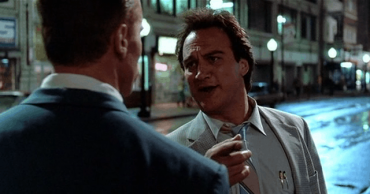
While audiences loved the movie Interstellar more than the critics did, there have been hundreds of articles discussing the science of the movie more than the humanity encapsulated within it. Yet there is a lack of discussion about the connection between time and love, and how we choose to view our lives within the confines of time. The message is not hidden in the movie, just overlooked because science is tangible and love is not.
The fact that love exists beyond the dimension of time is something unique to humanity. It is in our present, can be expressed and recorded in history in a way future generations will understand, and connects us as humans regardless of the language we speak, our personal limitations, or where we come from. We love in time but are limited to expressing it in space.
Time is the one aspect of life everyone experiences but no one seems to be able to explain scientifically. In Interstellar, application of Einstein’s Theory of Relativity is clear, and what we easily ignore is the reality that time exists all at once. What has just happened is now in the past, and the words that you will read in the future have become the present. Add to this the fact that not everyone experiences time the same way. Interstellar presents the movie in a way that is first linear, moving forward one event at a time, to disorienting the viewer’s space-time perception by jumping around in time. Despite the visual manipulation, each viewer will experience the film one frame at a time, limited by the space in which we live our lives.
In the movie, one of the most intense scenes is when Cooper and Brand return after a journey measured in hours and discover that their children have aged 23 years. Time did not wait for them, and they have missed the lives and experiences of their children during what is in their minds, a trek that lasted only hours. Cooper and Brand experiences what is known as the dilation of time. It is a scientific concept, but something many of us experience. As one example, when a soldier goes off to Afghanistan, their family’s life continues in time. When they return, they have missed the experience of those moments in space and can only relive them through the expressed memories of time. We experience loss.
Technology, from the invention of paper and ink to the ubiquitous digital storage mediums, have allowed us throughout history to record the events of our lives in written, audio, and visual formats. The question is why humans have done this. More than just sharing experiences and ideas, it creates connections with our own culture and cultures unknown to us. Yet social scientists are reporting that we are more disconnected than ever before, choosing virtual reality over reality.
Interstellar shows us that while we can have a knowledge of history in an endless time continuum, it is only our connection to a single point in time that makes life meaningful. That point is the moment we call “now.” The connection between a moment ago or a decade ago is the point of reference to those we have known and loved in the past — and love at this moment. When people become merely objects that we share experiences with, like respawning in a video game, there will be no future connection with them. We are confined in space and pass through time, but it is our human connections that allow us to transcend time and live in hope of a better future.
 Follow Us
Follow Us





